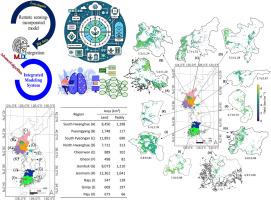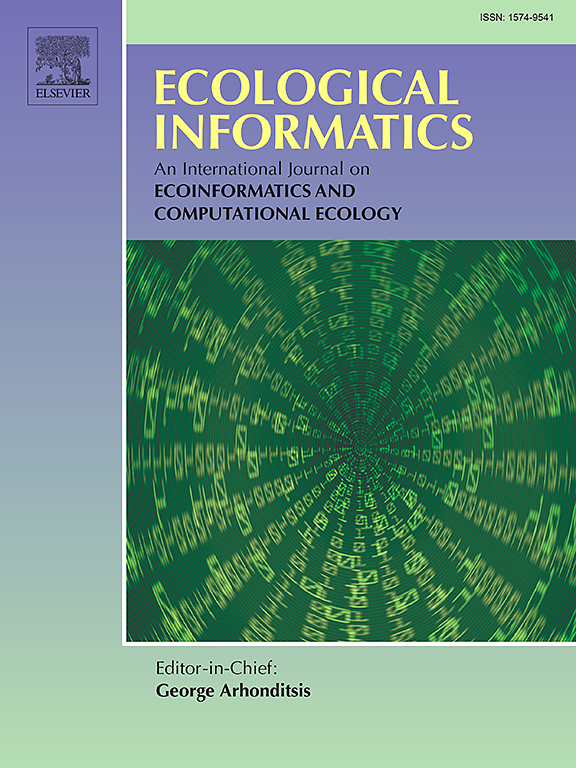用于水稻产量预测的深度学习增强型遥感综合作物建模
IF 5.8
2区 环境科学与生态学
Q1 ECOLOGY
引用次数: 0
摘要
本研究介绍了一种基于尖端计算工具的新型作物建模方法,以推进作物生产监测方法,从而解决全球粮食安全问题。我们的方法开创性地将深度学习和遥感技术与基于过程的作物模型相结合,以提高水稻产量预测,同时充分利用每个模型的优缺点。我们开发并评估了基于不同深度神经网络架构的四种模型:前馈神经网络、长短期记忆(LSTM)、门控递归单元和双向 LSTM。所有模型都表现出很高的预测准确度,偏差百分比为 0.74-2.62,纳什-苏特克利夫模型效率为 0.954-0.996;不过,在四个模型中,LSTM 的表现最好。值得注意的是,当模型应用于未包含在训练阶段的区域数据集时,其表现各不相同;这凸显了对多样化训练数据的迫切需要,以增强模型的稳健性。这项研究将最先进的计算技术与成熟的方法相结合,为作物产量预测设定了新标准,标志着农业建模领域的重大进步。本文章由计算机程序翻译,如有差异,请以英文原文为准。

Deep learning-enhanced remote sensing-integrated crop modeling for rice yield prediction
This study introduces a novel crop modeling approach based on cutting-edge computational tools to advance crop production monitoring methodologies, and, thereby, tackle global food security issues. Our approach pioneers integrating deep learning and remote sensing with process-based crop models to enhance rice yield predictions while leveraging the strengths and weaknesses of each model. We developed and evaluated four models based on distinct deep neural network architectures: feed-forward neural network, long short-term memory (LSTM), gated recurrent units, and bidirectional LSTM. All the models demonstrated high predictive accuracies, with percent biases of 0.74–2.62 and Nash–Sutcliffe model efficiencies of 0.954–0.996; however, the LSTM performed best among the four models. Notably, the models' performances varied when applied to regional datasets that were not included in the training phase; this highlighted the critical need for diverse training data to enhance model robustness. This research marks a significant advancement in agricultural modeling by combining state-of-the-art computational techniques with established methodologies, setting a new standard for crop yield prediction.
求助全文
通过发布文献求助,成功后即可免费获取论文全文。
去求助
来源期刊

Ecological Informatics
环境科学-生态学
CiteScore
8.30
自引率
11.80%
发文量
346
审稿时长
46 days
期刊介绍:
The journal Ecological Informatics is devoted to the publication of high quality, peer-reviewed articles on all aspects of computational ecology, data science and biogeography. The scope of the journal takes into account the data-intensive nature of ecology, the growing capacity of information technology to access, harness and leverage complex data as well as the critical need for informing sustainable management in view of global environmental and climate change.
The nature of the journal is interdisciplinary at the crossover between ecology and informatics. It focuses on novel concepts and techniques for image- and genome-based monitoring and interpretation, sensor- and multimedia-based data acquisition, internet-based data archiving and sharing, data assimilation, modelling and prediction of ecological data.
 求助内容:
求助内容: 应助结果提醒方式:
应助结果提醒方式:


